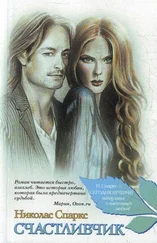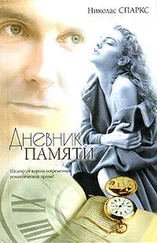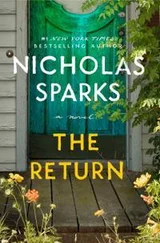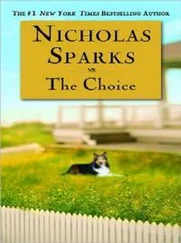I know that most people consider me to be a recluse. That’s how the journalist described me. As much as I despise the word and what it implies, there is some truth to what she wrote about me. I’ve been a widower for years, a man without children, and as far as I know, I have no living relatives. My friends, aside from my attorney, Howie Sanders, have long since passed away, and since the media storm – the one unleashed by the article in the New Yorker – I seldom leave the house. It’s easier that way, but I frequently wonder whether I should have ever talked to the journalist in the first place. Probably not, but when Janice or Janet or whatever her name was showed up at the door unannounced, her dark hair and intelligent eyes reminded me of Ruth, and the next thing I knew, she was standing in the living room. She didn’t leave for the next six hours. How she found out about the collection, I still don’t know. Probably from an art dealer up north – they can be bigger gossips than schoolgirls – but even so, I didn’t blame her for all that followed. She was doing her job and I could have asked her to leave, but instead I answered her questions and allowed her to take photographs. After she left, I promptly put her out of my mind. Then, a few months later, a squeaky-voiced young man who described himself as a fact-checker for the magazine phoned to verify things that I had said. Naively, I gave him the answers he wanted, only to receive a small package in the mail several weeks later. The journalist had been thoughtful enough to send me a copy of the issue in which the article appeared. Needless to say, the article enraged me. I threw it away after reading what she’d written, but later after I’d cooled down, I retrieved it from the trash and read it once more. In retrospect, I realized it wasn’t her fault that she hadn’t understood what I’d been trying to tell her. In her mind, after all, the collection was the entirety of the story.
That was six years ago, and it turned my life upside down. Bars went up on the windows and a fence was installed that circled the yard. I had a security system put in, and the police began making a point to drive past my house at least twice a day. I was deluged with phone calls. Reporters. Producers. A screenwriter who promised to put the story on the big screen. Three or four lawyers. Two people who claimed to be related, distant cousins on Ruth’s side of the family. Strangers down on their luck and looking for handouts. In the end, I simply unplugged the phone, for all of them – including the journalist – thought about the art only in terms of money.
What every last person failed to see was that it was not about money; it was about the memories they held. If Ruth had the letters I wrote her, I had the paintings and the memories. When I see the de Koonings and the Rauschenbergs and the Warhols, I recall the way Ruth held me as we stood by the lake; when I see the Jackson Pollock, I am reliving that first trip to New York in 1950. We were halfway through our trip, and on a whim we drove out to Springs, a hamlet near East Hampton on Long Island. It was a glorious summer day and Ruth wore a yellow dress. She was twenty-eight then and growing more beautiful with every passing day, something that Pollock did not fail to notice. I am convinced that it was her elegant bearing that moved him to allow two strangers into his studio. It also explains why he eventually allowed Ruth to purchase a painting he’d only recently completed, something he seldom, if ever, did again. Later that afternoon, on our way back to the city, Ruth and I stopped at a small café in Water Mill. It was a charming place with scuffed wood floors and sun-drenched windows, and the owner led us to a wobbly outdoor table. On that day, Ruth ordered white wine, something light and sweet, and we sipped from our glasses while gazing out over the Sound. The breeze was light and the day was warm, and when we spotted the occasional boat passing in the distance, we’d wonder aloud where it might be headed.
Hanging next to that painting is a work by Jasper Johns. We bought it in 1952, the summer that Ruth’s hair was at its longest. The first faint lines were beginning to form at the corners of her eyes, adding a womanly quality to her face. She and I had stood atop the Empire State Building earlier that morning, and later in the quiet of our hotel room, Ruth and I made love for hours before she finally fell asleep in my arms. I could not sleep that day. Instead, I stared at her, watching the gentle rise and fall of her chest, her skin warm against my own. In the dim surroundings of that room, her hair splayed over the pillow, I found myself asking whether any man had ever been as lucky as I.
This is why I wander our house late at night; this is why the collection remains intact. This is why I’ve never sold a single painting. How could I? In the oils and pigments I store my memories of Ruth; in every painting I recall a chapter of our lives together. There is nothing more precious to me. They are all I have left of the wife I’ve loved more than life itself, and I will continue to stare and remember until I can do it no more.
Before she passed, Ruth sometimes joined me on these late-hour wanderings, for she, too, enjoyed being drawn back in time. She, too, liked to retell the stories, even if she never realized that she was the heroine in all of them. She would hold my hand as we wandered from room to room, both of us reveling as the past came alive.
My marriage brought great happiness into my life, but lately there’s been nothing but sadness. I understand that love and tragedy go hand in hand, for there can’t be one without the other, but nonetheless I find myself wondering whether the trade-off is fair. A man should die as he had lived, I think; in his final moments, he should be surrounded and comforted by those he’s always loved.
But I already know that in my final moments, I will be alone.
18
Sophia
The next few weeks were one of those rare and wonderful interludes in which almost everything made Sophia believe nothing could be better.
Her classes were stimulating, her grades were excellent, and even though she hadn’t heard from the Denver Art Museum, her adviser recommended her for an internship at the Museum of Modern Art in New York. She would interview there over Christmas break. It wasn’t a paid position and she would probably have to commute from home if she got it, but it was MoMA. Never in her wildest dreams had she considered it a possibility.
In the limited time that she spent at the sorority house, she’d noticed that Marcia was developing a prance in her step – the same one she got whenever she’d focused on someone special. She was in a perpetually good mood, despite her denials that a guy had anything to do with it. At the same time, Mary-Kate had significantly reduced her responsibilities at the sorority – other than attending mandatory meetings, Sophia was for the most part exempt from sisterly obligations. Granted, this was probably the result of her own perfunctory attitude, but hey, whatever worked. Best of all, she hadn’t run into Brian around campus – nor had he texted or called – making it easy to forget they’d ever dated.
And then, of course, there was Luke.
For the first time, she felt she understood what loving someone really meant. Since their weekend in the cabin – aside from Thanksgiving, when she’d gone home to visit her family – they’d spent every Saturday night together at the ranch, mostly in each other’s arms. In between kisses, the feel of his bare skin electric against her own, she reveled in the sound of his voice telling her over and over how much he adored her and how much she’d come to mean to him. In the darkness, she would gently trace her finger over his scars, sometimes finding a new one that she hadn’t noticed before; they would talk until the early hours of the morning, pausing only to make love once more. The passion they felt for each other was intoxicating, something entirely different from what she’d felt with Brian. It was a connection that transcended the physical act. She’d grown to appreciate the quiet way Luke would slip from the bed first thing on Sunday mornings to feed the animals and check the cattle, trying his best not to wake her. Usually she would doze again, only to be awakened later with a cup of hot coffee and his presence beside her. Sometimes they’d while away an hour or more on the porch or simply make breakfast together. Almost always they’d take the horses out, sometimes for an entire afternoon. The crisp winter air would turn her cheeks red and make her hands ache, yet in those moments she felt connected to Luke and the ranch in a way that made her wonder why it had taken her so long to find him.
Читать дальше











![Николас Спаркс - Каждый вдох [litres]](/books/414723/nikolas-sparks-kazhdyj-vdoh-litres-thumb.webp)
